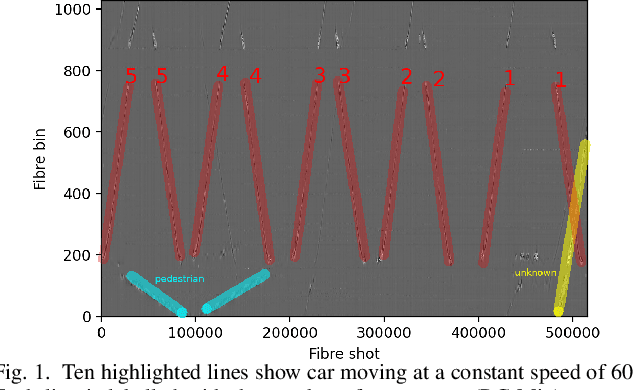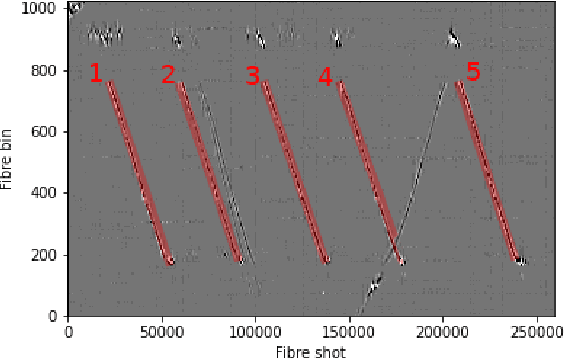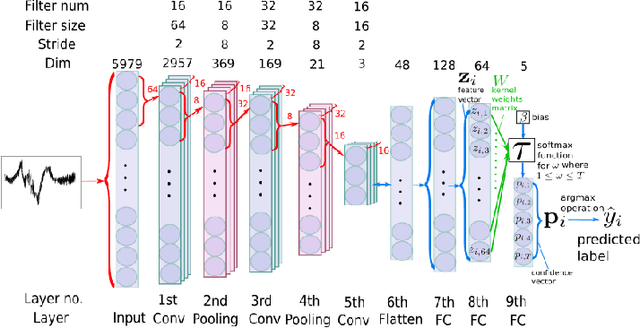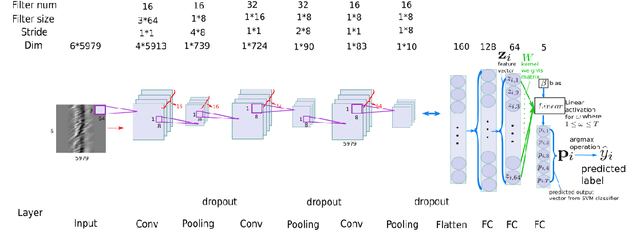Peter Hayward
Intelligent Travel Activity Monitoring: Generalized Distributed Acoustic Sensing Approaches
Jun 11, 2025Abstract:Obtaining data on active travel activities such as walking, jogging, and cycling is important for refining sustainable transportation systems (STS). Effectively monitoring these activities not only requires sensing solutions to have a joint feature of being accurate, economical, and privacy-preserving, but also enough generalizability to adapt to different climate environments and deployment conditions. In order to provide a generalized sensing solution, a deep learning (DL)-enhanced distributed acoustic sensing (DAS) system for monitoring active travel activities is proposed. By leveraging the ambient vibrations captured by DAS, this scheme infers motion patterns without relying on image-based or wearable devices, thereby addressing privacy concerns. We conduct real-world experiments in two geographically distinct locations and collect comprehensive datasets to evaluate the performance of the proposed system. To address the generalization challenges posed by heterogeneous deployment environments, we propose two solutions according to network availability: 1) an Internet-of-Things (IoT) scheme based on federated learning (FL) is proposed, and it enables geographically different DAS nodes to be trained collaboratively to improve generalizability; 2) an off-line initialization approach enabled by meta-learning is proposed to develop high-generality initialization for DL models and to enable rapid model fine-tuning with limited data samples, facilitating generalization at newly established or isolated DAS nodes. Experimental results of the walking and cycling classification problem demonstrate the performance and generalizability of the proposed DL-enhanced DAS system, paving the way for practical, large-scale DAS monitoring of active travel.
A Distributed Acoustic Sensor System for Intelligent Transportation using Deep Learning
Sep 13, 2022



Abstract:Intelligent transport systems (ITS) are pivotal in the development of sustainable and green urban living. ITS is data-driven and enabled by the profusion of sensors ranging from pneumatic tubes to smart cameras. This work explores a novel data source based on optical fibre-based distributed acoustic sensors (DAS) for traffic analysis. Detecting the type of vehicle and estimating the occupancy of vehicles are prime concerns in ITS. The first is motivated by the need for tracking, controlling, and forecasting traffic flow. The second targets the regulation of high occupancy vehicle lanes in an attempt to reduce emissions and congestion. These tasks are often conducted by individuals inspecting vehicles or through the use of emerging computer vision technologies. The former is not scale-able nor efficient whereas the latter is intrusive to passengers' privacy. To this end, we propose a deep learning technique to analyse DAS signals to address this challenge through continuous sensing and without exposing personal information. We propose a deep learning method for processing DAS signals and achieve 92% vehicle classification accuracy and 92-97% in occupancy detection based on DAS data collected under controlled conditions.
 Add to Chrome
Add to Chrome Add to Firefox
Add to Firefox Add to Edge
Add to Edge